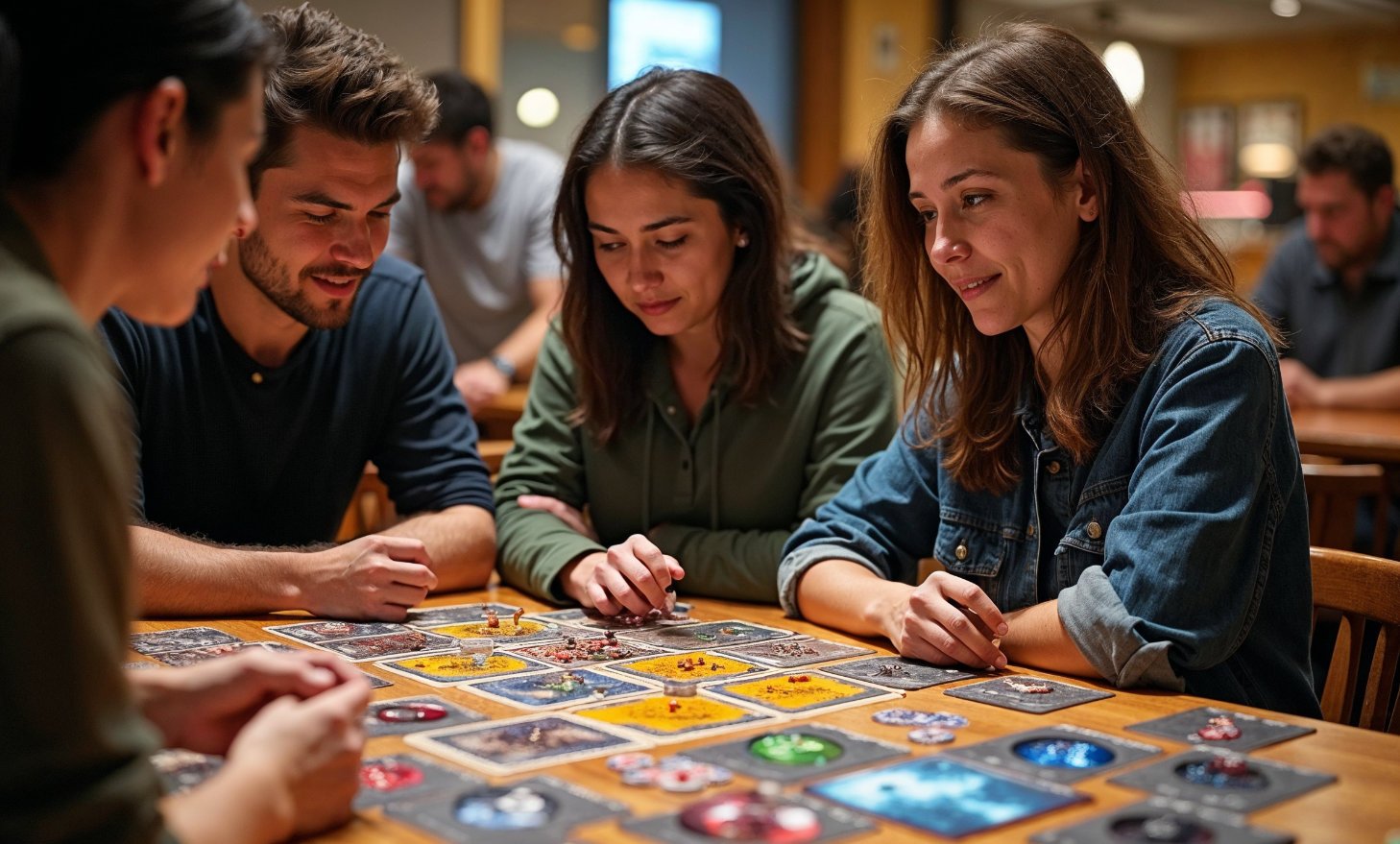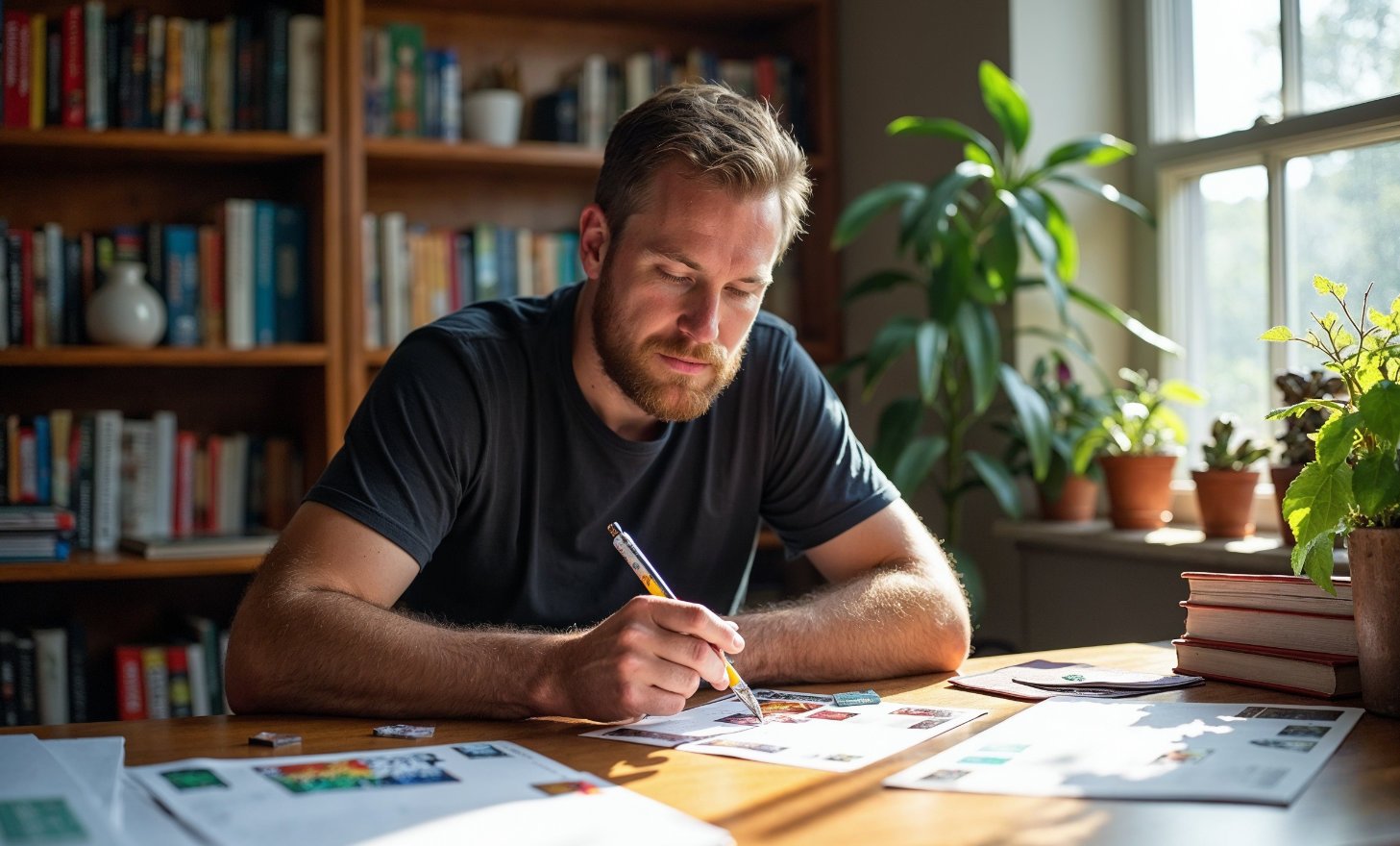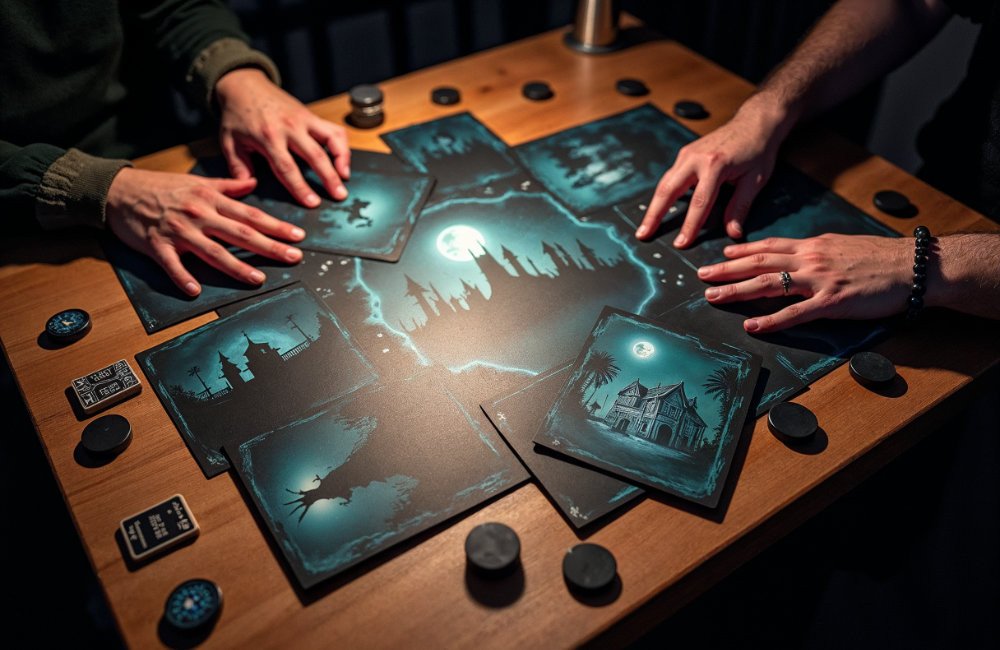Playtester Spotlight – Sarah Thompson
From Casual Gamer to Playtesting Pro
Sarah’s journey into playtesting started much like many others: as a casual gamer with a love for strategy games. “I’ve always enjoyed dissecting mechanics and finding ways to optimize my gameplay,” she shared. This natural curiosity soon led her to volunteer at local playtesting events, where she realized that her insights could help shape the games she was playing.
“It’s rewarding to know that something you’ve suggested might be part of the final game,” Sarah explained. Over the years, she has playtested a variety of game genres, but she has a particular fondness for narrative-driven games with strong thematic elements.
Playtesting Ghost Quest: Finding the Right Balance
One of the most recent games Sarah playtested was Ghost Quest. “When I first heard about it, I was intrigued by the concept of a cooperative ghost-hunting game with puzzle elements,” she said. During the playtesting sessions, Sarah was tasked with providing feedback on the pacing, difficulty, and overall player experience.
Ghost Quest challenges players with strategic combat against ghosts and puzzle-solving, but finding the right balance between these elements was a key focus during the testing phase. According to Sarah,
“The first few playthroughs felt a bit skewed—combat was intense, but the puzzles sometimes slowed down the momentum. We worked closely with Alex [the designer] to adjust the flow so that the puzzles felt more integrated into the action.”
Sarah’s insights were particularly helpful in refining the ghost AI, which she found both engaging and unpredictable. “One thing I loved was how the ghosts seemed to ‘learn’ from the players’ actions, which really made the game feel dynamic.” However, she also pointed out that at times, the difficulty ramped up too quickly, leaving players feeling overwhelmed early in the game. Through her feedback, the difficulty curve was smoothed out to ensure a more gradual progression.
The Importance of Detailed Feedback
As Sarah talked about her playtesting process, it became clear that providing detailed feedback is at the heart of her role. She doesn’t just focus on what’s fun or frustrating—she dives into the mechanics to see how everything interacts. “It’s not just about pointing out problems,” she explained.
“It’s about understanding why something doesn’t work and offering solutions. Designers need constructive feedback, not just complaints.”
For Ghost Quest, one of her key suggestions was to include more moments of downtime between intense battles. “It’s important to give players space to breathe, especially in cooperative games. Otherwise, the constant action can feel overwhelming.” These quieter moments were later added as part of environmental events and narrative choices, which helped balance the overall experience.

The Value of Playtesters in Game Development
When asked what she believes is the most important aspect of playtesting, Sarah emphasized the role of diversity in feedback. “The more diverse the group, the better. Everyone plays differently, so having a range of perspectives is crucial for spotting issues that might not be immediately obvious.” She often encourages designers to bring in a variety of testers—both experienced gamers and newcomers—to get a full picture of how a game functions across different player types.
Sarah also shared her thoughts on the growing recognition of playtesters in the industry.
“I think designers are starting to realize that playtesting is more than just a checkbox on the development list. It’s an ongoing dialogue between the designer and the testers, and it’s essential for making a game the best it can be.”
Advice for Aspiring Playtesters
For those looking to get involved in playtesting, Sarah offered some practical advice. “Start local,” she recommended. “There are always designers looking for testers at local game shops or conventions. And don’t be afraid to speak up—your feedback is valuable, even if you’re new to it.”
She also mentioned the importance of being patient. “Sometimes you’ll test games in very early stages, and they might not feel complete. That’s part of the process. You’re helping the designer shape their vision, and that takes time.”
Looking Ahead
As for her future, Sarah plans to continue playtesting as much as she can. She finds the process of working with designers fulfilling and enjoys seeing how games evolve from early concepts to polished products. “I’ll definitely keep testing narrative-heavy games like Ghost Quest. There’s something about uncovering mysteries and solving puzzles that keeps me hooked.”
Sarah hopes that her work will inspire others to get involved in playtesting. “It’s a great way to contribute to the gaming community, and you get a sneak peek at some amazing games before anyone else.”
Interested in playtesting or learning more about Ghost Quest? Join the community ProtoHypeHub!


